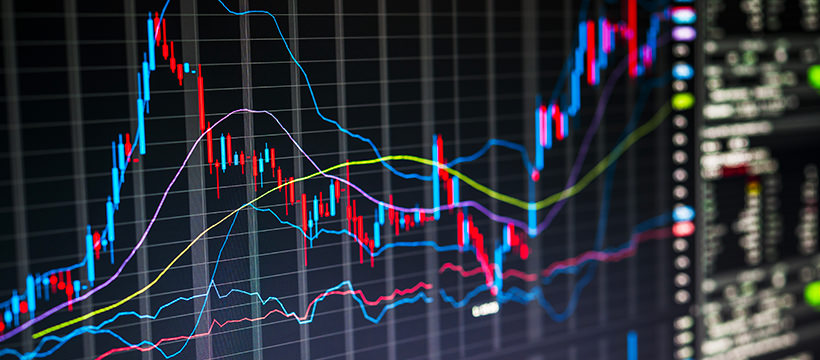Online Trading Myths: The Good, the Bad, and the Ugly
January 15, 2021

There are few activities so beset by so many prejudices as online trading. Moreover, for better or worse. Exactly, there are negative prejudices and positive prejudices. None of these corresponds to reality, obviously, all are capable of harming the world of online trading, which instead is characterized by its own dignity.
We discuss this in this article, listing the negative prejudices and positive prejudices, but also investigating the reasons for this disconnect between the collective imagination and the reality of the facts.
Online trading, an image problem
Online trading has a clear image problem. The collective imagination of the uninitiated, which by necessity includes the vast majority of individuals, is rich in simply wrong beliefs. Now, these can heavily harm the world of online trading.
At best, when beliefs are false but positive, they lead to disaster for those who are less technically equipped, deluding them and inducing them to err. At worst, when the beliefs are not only false but also negative, they discourage the entry of new players, and put both investors and companies that provide services (basically, the Brokers) in a bad light.
But where do all these misconceptions come from? Why is online trading the victim of so many prejudices? There are three main reasons.
The subject is complex. Online trading is one of the most difficult activities an investor can ever undertake. Now, like all complex activities, it is not understood by non-experts. Therefore, it is easy for them to interpret signals in a completely wrong way, creating and spreading real fake news. The process is not always in bad faith, on the contrary. However, this does not detract from its dangerousness.
Some advertising campaigns are reckless. Feeding false beliefs, especially positive ones, are some very bold advertising campaigns, albeit lawful. Obviously, the purpose of marketing is to sell. This is a physiological dynamic, which Brokers do not escape. However, many times they exaggerate, and this lends itself to the spread of an erroneous image of online trading.
Regulation came late. Or, better to say, active vigilance activities. This has allowed some scam companies to run rampant for a long time. Since a falling tree makes much more noise than a growing tree, scams have been given ample prominence. They have given rise to the spread of prejudices, and in particular to the one that associates the practice of online trading with the concept of fraud. Over time, this label has stuck to it, and is still present today.
The "bad" falsehoods about online trading
Let's start by listing the falsehoods circulating about online trading, starting with the bad ones. Well, there are essentially two, but capable of "doing a lot of damage".
Online trading is always a scam. It is the prejudice of prejudices. To tell the truth, it belongs above all to the absolute uninitiated, to those who know little not only about trading but also about investments in general. We are talking about the vast majority of people. The reason why this prejudice has made space in the perception of the common people is obvious: the scandals that, much more in the past than today, have drawn people's attention and, in some cases, have shaken public opinion have weighed heavily.
The truth is that online trading, net of bad apples, is an investment activity like any other. It has the same dignity as investing in a bank, or speculative investments conducted on institutional platforms.
Online trading is only for experts. This is also a prejudice capable of affecting, and in particular of discouraging aspiring traders. If nothing else, it has a foundation, albeit absolutely partial. The truth, however, is that success with online trading while not being a professional trader (not yet) is not impossible, it is "only" difficult. Of course, saying that it is the prerogative of only full-fledged professionals precludes this path to many willing people, and intending to train adequately.
The "good" falsehoods about online trading
Even beliefs that put online trading in a good light can do damage. Specifically, they can push to adopt a wrong approach, at best reckless. All this is followed by the loss of money, disillusionment and the definitive departure from the world of trading.
Online trading is a matter of instinct. Certainly, this false perception has been favored over time by films, novels and narratives that see the trader as a kind of perfect machine, who acts on pure instinct, who bases his actions on courage. This belief is very badly married to the need to train, to learn and, above all, to approach speculative investment with a sense of self-denial. In short, believing that trading is a matter of courage, rather than rationality and calculation, leads the novice trader to put in place wrong attitudes, always risky.
Online trading means making easy money. This belief is the corollary of the previous one. Very often, it is carried out by some borderline advertising campaigns, even by those that bear the disclaimer on risks. Indeed, the presence of the latter offers the opportunity to be able to write whatever you want in your sales pages. Certainly, it is possible to get rich with online trading, but it is a process that is anything but simple. This false perception pushes people without rhyme or reason, and without the desire to learn, to undertake speculative investment activity... With a truly obvious outcome.
Online trading is easy to learn. Even the belief that it is enough to memorize two or three notions, and internalize a very lean trading system (and palely thought for others) can hurt the beginner as well as the world of online trading in general. Training courses can be completed by anyone who wants to learn, but they are never easy or straightforward. It is a matter of studying, of putting oneself under, as if one had to pass university exams (at best).




